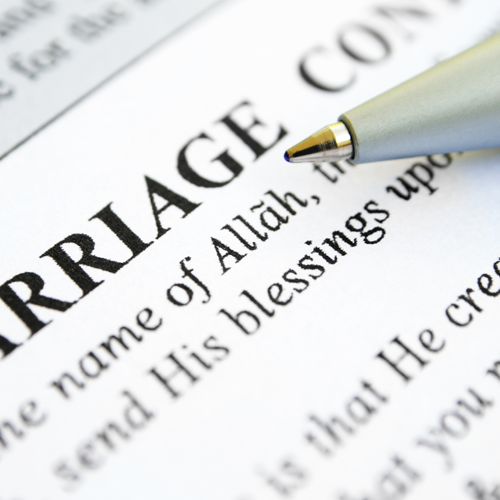How Will Same-Sex Marriage Bans Shape John Robert’s Court

Opinion on Same-Sex Marriage Bans Will Define Robert Court
The U.S. Supreme Court has agreed to consider four cases involving state law bans on same-sex marriage. After previously sidestepping the historic constitutional and social issue, the justices’ decision is likely to define the Robert Court.
The Legal Background
In the wake of the Windsor decision, state and federal courts across the country further held that state laws prohibiting same-sex marriage or failing to legally recognize same-sex unions formed in other states also violate the U.S. Constitution. However, the Sixth Circuit Court of Appeals broke ranks in November. It ruled that the legality of same-sex marriage should be left up to voters or the states and not dictated by courts. The decision overturned lower court rulings in Kentucky, Michigan, Ohio, and Tennessee that had struck down same-sex marriage laws.
“When the courts do not let the people resolve new social issues like this one, they perpetuate the idea that the heroes in these change events are judges and lawyers. Better, in this instance, we think, to allow change through the customary political processes, in which the people, gay and straight alike, become the heroes of their own stories by meeting each other not as adversaries in a court system but as fellow citizens seeking to resolve a new social issue in a fair-minded way,” the majority wrote.
Prior to the Sixth Circuit’s decision, the Fourth, Seventh, Ninth and Tenth Circuits all upheld the right to marry. Thus, the decision created the necessary circuit split that brings same-sex marriage back to the Supreme Court.
The Issues Before the Court
The justices agreed to consider two basic issues that arise from state laws prohibiting or refusing to recognize same-sex marriage. They are:
- Does the Fourteenth Amendment require a state to license a marriage between two people of the same sex?
- Does the Fourteenth Amendment require a state to recognize a marriage between two people of the same sex when their marriage was lawfully licensed and performed out-of-state?
The Obama Administration has already indicated that it will file a ‘friend of the court’ brief that argues in favor of marriage equality. “It is time for our nation to take another critical step forward to ensure the fundamental equality of all Americans—no matter who they are, where they come from, or whom they love,” Attorney General Eric Holder stated.
The Court will hear oral arguments in late April and will likely issue its decision at the end of this term in June. We encourage you to check back for updates.
Previous Articles
SCOTUS Wraps Up Oral Arguments for the Term
by DONALD SCARINCI on May 17, 2022
The U.S. Supreme Court has concluded its oral arguments for the October 2021 Term. The justices hea...
SCOTUS Rules Censure of Elected Board Member Didn’t Violate First Amendment
by DONALD SCARINCI on May 10, 2022
In Houston Community College System v. Wilson, 595 U.S. ____ (2022), the U.S. Supreme Court held th...
Supreme Court Breach Is Not the First Involving Roe v. Wade
by DONALD SCARINCI on
The recent disclosure of Justice Samuel Alito’s decision purporting to overturn Roe v. Wade is ar...
The Amendments
-
Amendment1
- Establishment ClauseFree Exercise Clause
- Freedom of Speech
- Freedoms of Press
- Freedom of Assembly, and Petitition
-
Amendment2
- The Right to Bear Arms
-
Amendment4
- Unreasonable Searches and Seizures
-
Amendment5
- Due Process
- Eminent Domain
- Rights of Criminal Defendants
Preamble to the Bill of Rights
Congress of the United States begun and held at the City of New-York, on Wednesday the fourth of March, one thousand seven hundred and eighty nine.
THE Conventions of a number of the States, having at the time of their adopting the Constitution, expressed a desire, in order to prevent misconstruction or abuse of its powers, that further declaratory and restrictive clauses should be added: And as extending the ground of public confidence in the Government, will best ensure the beneficent ends of its institution.




